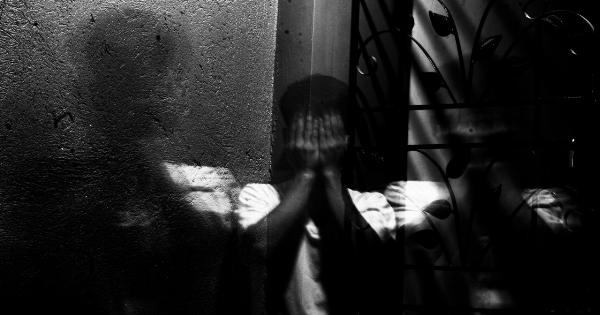Horror movies have the unique ability to captivate audiences and keep them on the edge of their seats. Whether it’s the suspense, the thrill, or the adrenaline rush, there’s something about being scared that draws people in.
But have you ever wondered what effects horror movies actually have on your brain? In this article, we will delve into the bloodcurdling world of horror films and explore the fascinating impact they can have on our minds.
The Evolutionary Explanation
One might question why anyone would willingly subject themselves to fear and terror, but the answer lies in our human nature. From an evolutionary perspective, feeling fear has been crucial for survival.
It helps us navigate dangerous situations by triggering a fight-or-flight response. Horror movies tap into this primal instinct, allowing us to experience fear in a controlled environment. Interestingly, the brain’s response to perceived threats in movies is similar to how it would react in real-life scenarios.
The Adrenaline Rush
One of the main reasons people are drawn to horror movies is the adrenaline rush they provide.
As we watch a suspenseful or scary scene unfold, our bodies react by releasing adrenaline, a hormone associated with heightened awareness and increased heart rate. This surge of adrenaline creates a thrilling sensation and can be quite addictive for some viewers.
The Role of Dopamine
Another neurotransmitter that plays a role in our fascination with horror movies is dopamine. Dopamine is associated with pleasure and reward, and it is released in our brains when we anticipate or experience something exciting.
In horror movies, the build-up of suspense followed by an intense scare triggers a release of dopamine, which can lead to a sense of satisfaction and pleasure. This reinforcement encourages us to seek out similar experiences in the future.
The Psychological Impact
While horror movies can be thrilling and entertaining, they can also have psychological effects on the brain. For some individuals, exposure to intense and graphic horror scenes can lead to feelings of anxiety, increased heart rate, and even nightmares.
However, this response varies greatly from person to person and is influenced by factors such as sensitivity to violence and personal experiences.
The Cathartic Release
Contrary to popular belief, watching horror movies can have a cathartic effect on our emotions. When we experience fear during a film, our bodies go through a series of physiological changes.
Once the threat or suspense is resolved, a sense of relief washes over us, accompanied by a feeling of satisfaction. This release of tension can have a cathartic effect, serving as a healthy outlet for stress and anxiety.
The Impact on Sleep Patterns
For some individuals, watching horror movies close to bedtime can disrupt their sleep patterns. The images and themes of horror films can linger in the subconscious, leading to nightmares or disturbed sleep.
It is recommended to avoid watching intense horror movies before bed to ensure a good night’s sleep.
The Desensitization Effect
Repeated exposure to horror movies can lead to desensitization, where the audience becomes less responsive to the fear-inducing stimuli. Over time, individuals may find that they are less easily shocked or frightened by horror films.
This desensitization effect can be both a positive and negative outcome, depending on personal preferences.
The Cognitive Benefits
Despite the potential negative impact, horror movies also offer cognitive benefits. The intricate plotlines, suspenseful scenes, and unexpected twists often require viewers to engage in critical thinking and problem-solving.
Analyzing the suspense and anticipating the resolution can enhance cognitive skills and improve mental agility.
The Social Aspect
Watching horror movies can be a social activity, bringing people together to share their fears and thrills. The shared experience of fear can bond individuals and create lasting memories.
Whether it’s watching a scary movie with friends or attending a horror film screening, the social aspect enhances the overall enjoyment of the genre.
The Limits of Reality
Despite the terrifying nature of horror movies, one significant advantage is their clear distinction from reality. While they may tap into our deepest fears, we can always reassure ourselves that what we are watching is fictional.
This ability to differentiate between real and imagined threats provides a sense of safety and allows us to indulge in the thrill without genuine danger.






























